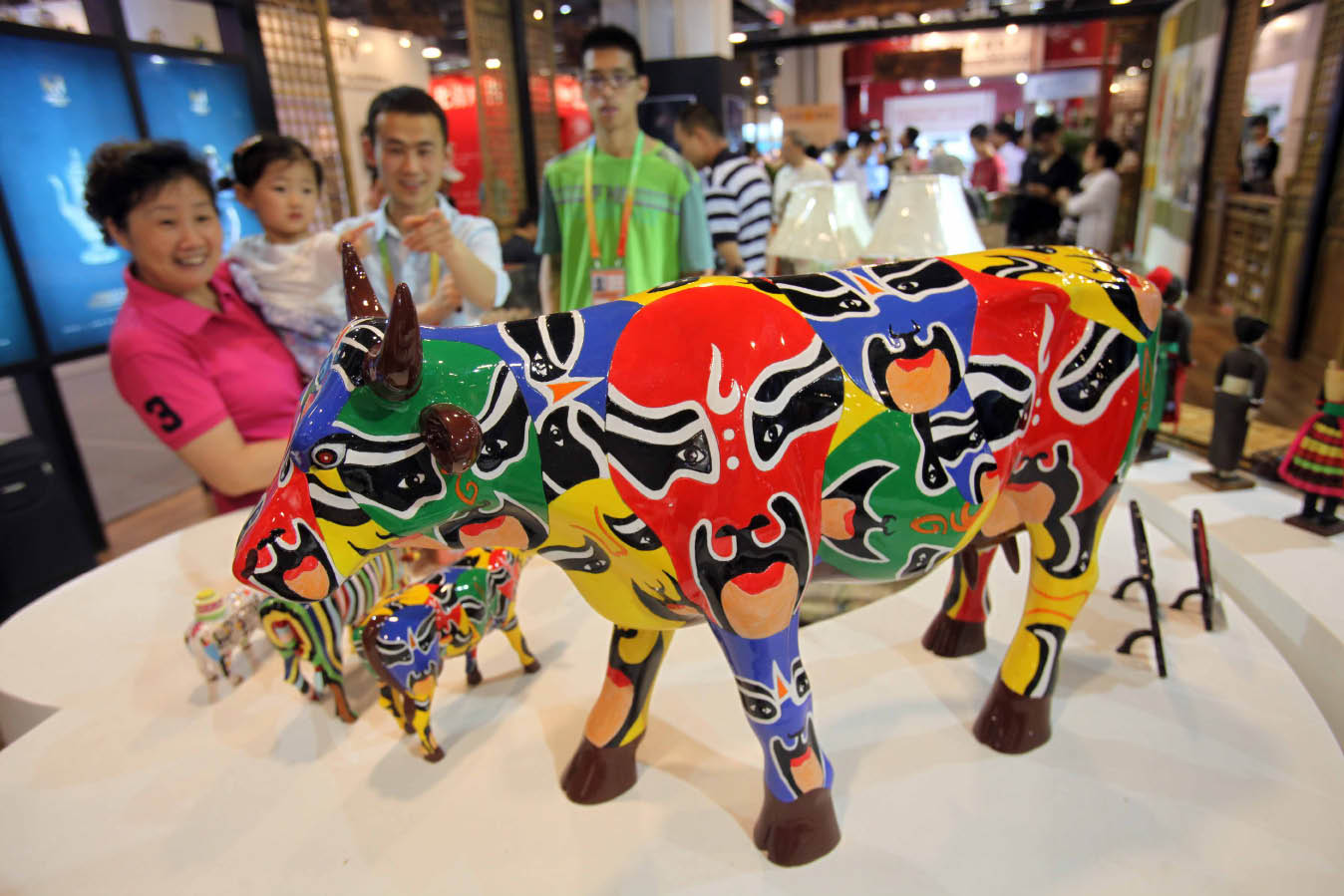Once Fujian's Tulou Become Famous
Since Fujian's tulous were designated a World Cultural Heritage site, Eryi Lou has received hundreds of visitors a day. Suddenly the quiet earthen compounds have come alive with activity, hosting a growing number of foreign guests. Recently, a five-member television crew from Germany came to shoot a documentary. After the filming, Jiang Huolu, his son and a farmer photographer followed the German team to Shanghai, acting as Hakkas in the television program.
It was the first time Jiang Huolu had visited a big city, and he confessed to enjoying the new sights. But he had to admit that he missed his home. Staying in a deluxe guestroom in a Shanghai hotel, Jiang did not find it more comfortable than his home. Although he had planned to stay in Shanghai for 20 days, he went home after only eight.
In 1912, Lin Rigeng's grandfather and his brother built Zhencheng Lou at a cost of 80,000 silver dollars. Construction took five years. Located in a dense forest in Hongkeng Village, Yongding County, it occupies 5,000 square meters and has more than 200 rooms. Twenty-three years ago, the models of this building and that of the Temple of Heaven in Beijing were displayed at an international architectural model exhibition in Los Angeles, causing a sensation.
In the early 1980s, Lin Rigeng found that some of the backpackers coming to visit his tulou were scholars and specialists. He listened carefully to what they said, and gradually became the first tour guide of Fujian's tulou. Over the next 20 years, he received countless tourists from more than 20 countries and regions. The busiest season is Spring Festival, when all the rooms in the earthen house are occupied by tourists from Europe, the United States and Japan. They spend the eve of Spring Festival together with Lin Rigeng and his family, drinking Hakka wine and enjoying Hakka dishes.
After successfully applying for World Cultural Heritage status, the relevant departments in Fujian Province stipulated that any production facilities – such as construction, power, telecommunications, water conservancy, planting and animal husbandry – should not threaten the safety of the earthen houses. Dr. Luo Deyin, an expert of rural architecture from Tsinghua University, has recommended that the number of visitors to Fujian's tulou should be limited, in order to protect the region's invaluable legacy.

